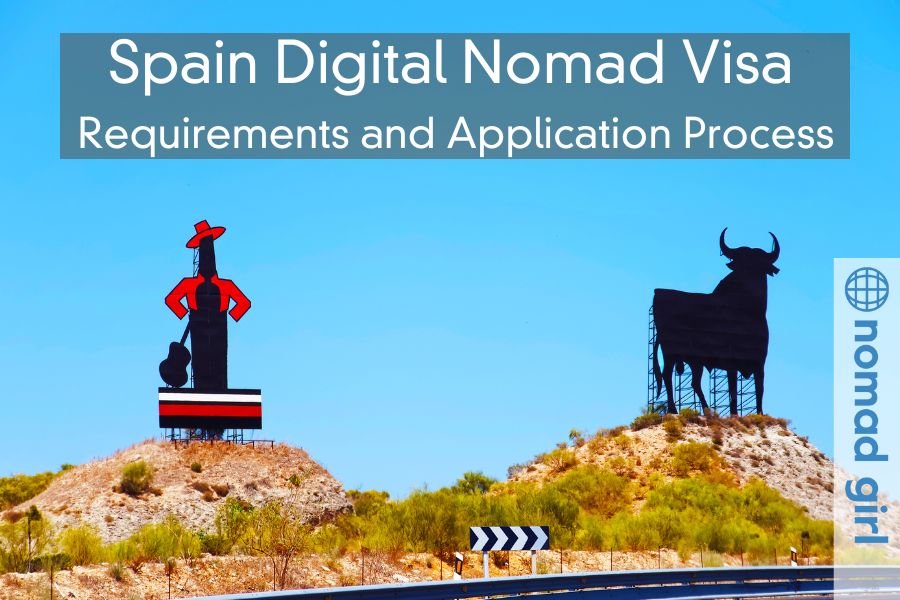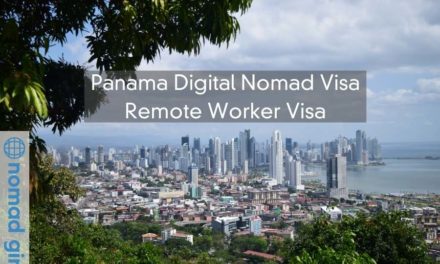Spain, with its picturesque beaches, vibrant cities, and enviable Mediterranean climate, is an attractive destination for digital nomads. The country’s rich cultural heritage, fantastic culinary scene, and affordable cost of living make it an ideal base for remote workers seeking a change of scenery.
For British citizens post-Brexit, who no longer enjoy the freedom of movement within the EU, The Spain Digital Nomad Visa offers a gateway to extended stays, allowing them to escape the tedious 90-day Schengen limitation.
However, as appealing as a long-term stay in Spain sounds, navigating the bureaucracy involved in securing the visa is an adventure in itself.
Introduced as part of the Spain Startup Act in January 2023, the Spain Digital Nomad Visa seeks to draw foreign entrepreneurs, freelancers, and remote employees to the country, boosting Spain’s economy by attracting innovative minds.
This visa, valid for up to five years, provides non-EU nationals, particularly those from the UK, with an opportunity to enjoy Spanish life while maintaining their careers abroad. The process, while rewarding, is steeped in paperwork, bureaucracy, and legal nuances, but many have successfully trodden the path before.

Eligibility Requirements for Spain’s Digital Nomad Visa
To apply for the Spain Digital Nomad Visa, several key eligibility requirements must be met. These aren’t simply guidelines; they are firm, non-negotiable criteria designed to ensure that applicants are serious about living and working remotely in Spain.
- Non-EU/EEA Citizen: First and foremost, applicants must not be citizens of the European Union (EU) or the European Economic Area (EEA). If you’re British, this post-Brexit reality is likely one of the reasons you’re seeking out the visa in the first place.
- Remote Work: You must already be employed by or contracted with a company outside of Spain. Freelancers and entrepreneurs must prove that no more than 20% of their income derives from Spanish clients or companies. Spain is clearly protective of its job market, so they’ve set this cap to ensure local businesses aren’t overshadowed by incoming nomads.
- Income Threshold: Applicants must earn at least 200% of the Spanish minimum wage, which equates to roughly €2,140 per month or €25,700 annually. For those bringing family members along, higher income thresholds apply. So, if you’re thinking about relocating with your partner and kids, be prepared to demonstrate even more substantial financial stability.
- Education and Experience: Either a university degree or a minimum of three years of professional experience in your respective field is required. If you’ve been working remotely for years but lack formal qualifications, it’s the work experience that will back your application.
- Clean Criminal Record: Spain insists on a clean criminal record from the past five years. A trip to your local authorities to acquire this document, stamped with an Apostille, will be an essential part of your paperwork gathering.
- Health Insurance: Comprehensive private health insurance valid in Spain is a must. The policy should cover all potential healthcare needs for the duration of your stay, as relying on the public system isn’t an option.

The Application Process
The application process for the Spain Digital Nomad Visa is straightforward in theory, but navigating it without frustration is a different story altogether. Preparation is key, as even minor mistakes can lead to delays, rejections, or worse—having to restart the entire process.
- Gathering Documents:
- You’ll need a completed visa application form, a valid passport with at least one year of validity remaining, and two passport-sized photos.
- Proof of employment is crucial, and this should come in the form of an employment contract or a letter confirming your remote work arrangements. Freelancers should have contracts demonstrating a steady income from international clients.
- Proof of your education or work experience, criminal record, and health insurance are equally vital.
For those applying with family members, additional documentation, such as marriage or birth certificates, will be required. All documents must be translated into Spanish and legally authenticated, so brace yourself for yet another layer of bureaucracy.
- Submission and Fees: You have two options for submitting your application. You can apply either from your home country by visiting the nearest Spanish Consulate, or from within Spain during the first 90 days of your tourist visa. Visa application fees generally range between €75 and €100, depending on your nationality, and are non-refundable—even if your application is denied.
- Interviews and Waiting Time: While interviews are not always required, the Spanish Consulate reserves the right to request one if they deem it necessary. The standard visa processing time is between 15 to 45 days, although delays are common due to missing documents, inconsistencies, or other bureaucratic hurdles.

The Role of an Immigration Lawyer
Spain’s legal and bureaucratic system can feel like a labyrinth. If you’re not keen on spending endless hours trying to decipher legal jargon and cross-referencing paperwork, hiring an immigration lawyer might be your saving grace.
A professional lawyer can provide personalized guidance, helping you navigate the entire process while avoiding costly mistakes. They can assist in preparing the documents, translating them, and ensuring all legal formalities are in place.
Moreover, they can help with tax regulations, making sure you’re not caught off guard by Spain’s intricate tax laws. Ultimately, while not mandatory, seeking legal advice could make the process significantly smoother.
Visa Duration and Renewal
The Spain Digital Nomad Visa is initially granted for one year. However, it is renewable for up to five years, provided you meet the eligibility criteria each time. This means maintaining your income levels, adhering to tax obligations, and staying insured throughout your stay.
Renewal applications must be submitted at least 60 days before your current visa expires. The process, though lengthy, is generally straightforward for those who have all their paperwork in order.

Taxation for Spain Digital Nomad Visa Holders
One of the key considerations for anyone moving to a new country is taxation, and Spain has its own set of rules that apply to digital nomads under the DNV.
While the Digital Nomad Visa provides an attractive opportunity to live and work remotely in Spain, it also subjects you to Spanish tax laws, particularly if you stay in the country for an extended period. Here’s a detailed breakdown of the tax implications.
Tax Residency and the 183-Day Rule
Under Spanish law, anyone who spends more than 183 days in the country within a calendar year is considered a tax resident. As a tax resident, you will be liable to pay Spanish taxes on your worldwide income, not just the income you earn in Spain.
This is an important factor to consider, especially for those who may have significant earnings outside of Spain. If you plan to be in Spain long-term under the Digital Nomad Visa, this rule will likely apply to you.
However, Spain offers a special tax regime for digital nomads, which makes the tax burden lighter for the first few years.
Special Tax Regime for Digital Nomads
Spain has implemented a special tax regime for digital nomads, which can be a significant financial advantage, only for employees not for self employed. Here’s how it works:
- For the first four years of your stay, you can pay a flat tax rate of 24% on your Spanish-sourced income, up to €600,000 per year. This flat rate is significantly lower than Spain’s standard progressive income tax rates, which can climb as high as 48%.
- Income above €600,000 will be taxed at the standard rate of 48%.
This special regime is designed to make Spain an attractive destination for high-earning remote workers by offering them a lower tax rate for a limited time.
How to Apply for the Special Tax Regime
To benefit from this special tax regime, you must submit an application to the Spanish tax authorities within six months of obtaining your Digital Nomad Visa. It’s essential to meet all the deadlines and provide the necessary documents to take advantage of this tax break. Failing to do so could subject you to Spain’s regular, much higher tax rates.
Challenges for Digital Nomads Applying for the Beckham Law in Spain
Double Taxation Agreements
One of the major concerns for remote workers is double taxation—paying taxes both in their home country and in Spain. Fortunately, Spain has double taxation agreements with around 90 countries, including the United Kingdom, United States, Canada, Australia, and New Zealand. These agreements are designed to prevent individuals from being taxed twice on the same income.
Under these agreements, if you’re a tax resident in Spain, you’ll only pay taxes on your foreign income in your home country, not in Spain. However, to benefit from these agreements, it’s crucial to declare your tax residency and comply with both countries’ tax laws.
The application of these agreements can be complicated, so it’s advisable to consult a tax professional to ensure you’re filing everything correctly.
Tax Residency for Less Than 183 Days
Even if you stay in Spain for less than 183 days in a calendar year, you might still be considered a tax resident if Spain is deemed your centre of economic interest. For example, if the majority of your income is managed through Spanish banks or if your family lives in Spain, you could still fall under Spanish tax obligations.

Social Security and Pension Contributions for Digital Nomads
Apart from taxation, social security and pension contributions are another important aspect of living and working in Spain. These contributions can affect your eligibility for health benefits, unemployment support, and future pensions, both in Spain and in your home country.
Digital nomads have two main options when it comes to social security: remaining in their home country’s system or joining the Spanish social security system.
Option 1: Remaining in Your Home Country’s Social Security System
If you’re a British citizen, you can remain in the UK National Social Security system while working remotely in Spain. This option may be more convenient for those with pension plans and social security contributions in their home country. To remain in the UK system while working in Spain, you’ll need to present:
- A responsible declaration from your employer (if employed) or yourself (if self-employed), stating your intent to continue fulfilling your UK social security obligations.
- An A1 form issued by HMRC (the British tax authority), confirming that you will continue to pay UK National Insurance while temporarily working in Spain.
This option can be beneficial if you want to maintain your access to the UK’s pension system and healthcare benefits. However, it’s crucial to check how this decision might affect your rights to services like healthcare in Spain.
Option 2: Joining the Spanish Social Security System
If you prefer to fully integrate into the Spanish system, you have the option to join Spain’s Social Security System, known as RETA (for freelancers). To do this, you’ll need to provide:
- A certificate of registration with the Spanish Social Security system, both for you and your employer if applicable.
- A responsible declaration that explicitly states whether you are still registered with the British (or other home country) social security system, along with your commitment to comply with Spain’s social security obligations.
By joining the Spanish social security system, you will be entitled to:
- Public healthcare benefits under Spain’s robust public healthcare system.
- Pension contributions toward Spain’s pension plan. If you remain in Spain for several years, these contributions can go toward your future retirement in Spain.
- Access to unemployment benefits if you decide to leave your current remote work and seek other opportunities in Spain.
Important Considerations for Social Security and Taxes
While tax residency and social security contributions are distinct issues, they often overlap. Even if you opt to remain in the UK (or another country’s) social security system, you could still be considered a tax resident of Spain, depending on your circumstances and the length of your stay.
This distinction can affect which country you pay taxes in and which benefits you’re entitled to claim. Moreover, the choice of social security system can impact your access to pensions, healthcare, and unemployment benefits in both countries.

The Path to Permanent Residency and Beyond
One of the long-term benefits of the Spanish Digital Nomad Visa is the possibility of gaining permanent residency in Spain. If you fall in love with Spain’s lifestyle and decide to stay for good, the Digital Nomad Visa can pave the way toward this goal.
Permanent Residency After Five Years
Initially, the Digital Nomad Visa is valid for one year, after which it can be extended for another two years and renewed once more for an additional two years. After living in Spain for five years under the Digital Nomad Visa, you become eligible to apply for permanent residency. Permanent residency allows you to live and work in Spain without having to renew your visa every few years, offering more stability.
Pathway to Spanish Citizenship
After ten years of legal residency, including time spent under the Digital Nomad Visa, you can apply for Spanish citizenship. While this might seem like a long-term goal, it’s worth noting that Spain does not allow dual citizenship with most countries (with some exceptions for Latin American nations), so you would likely need to renounce your previous citizenship to become a Spanish national.

Who Should Apply?
The Spain Digital Nomad Visa is perfect for remote workers who envision Spain as more than just a brief stop on their global adventure. It’s ideal for those aiming to truly immerse themselves in the culture, lifestyle, and opportunities Spain has to offer. If your plan is to settle down for several years, this visa offers the structure and stability you need.
The visa’s renewal process, while requiring regular paperwork, serves as a stepping stone toward long-term residency. After five years, you’ll be eligible to apply for permanent residency, opening up the possibility of local employment or even starting a business. Think of it as a multi-year test run to see if Spain, with its vibrant cities and laid-back lifestyle, is where you want to plant your roots.
Conclusion
While the Spain Digital Nomad Visa opens the door to an exciting lifestyle in one of Europe’s most attractive countries, the financial and legal responsibilities that come with it should not be overlooked.
Whether it’s navigating Spain’s special tax regime, deciding which social security system to join, or understanding the long-term benefits of pension contributions, digital nomads must approach these issues with careful planning and expert advice.
Despite the paperwork and bureaucracy, Spain offers a golden opportunity for digital nomads to live and work in a Mediterranean paradise with clear paths toward permanent residency and citizenship.
Spain Digital Nomads – The 14 Most Popular Places to Stay and Work
Canary Islands & Balearic Islands – 7 Most Popular Islands for Digital Nomads


















